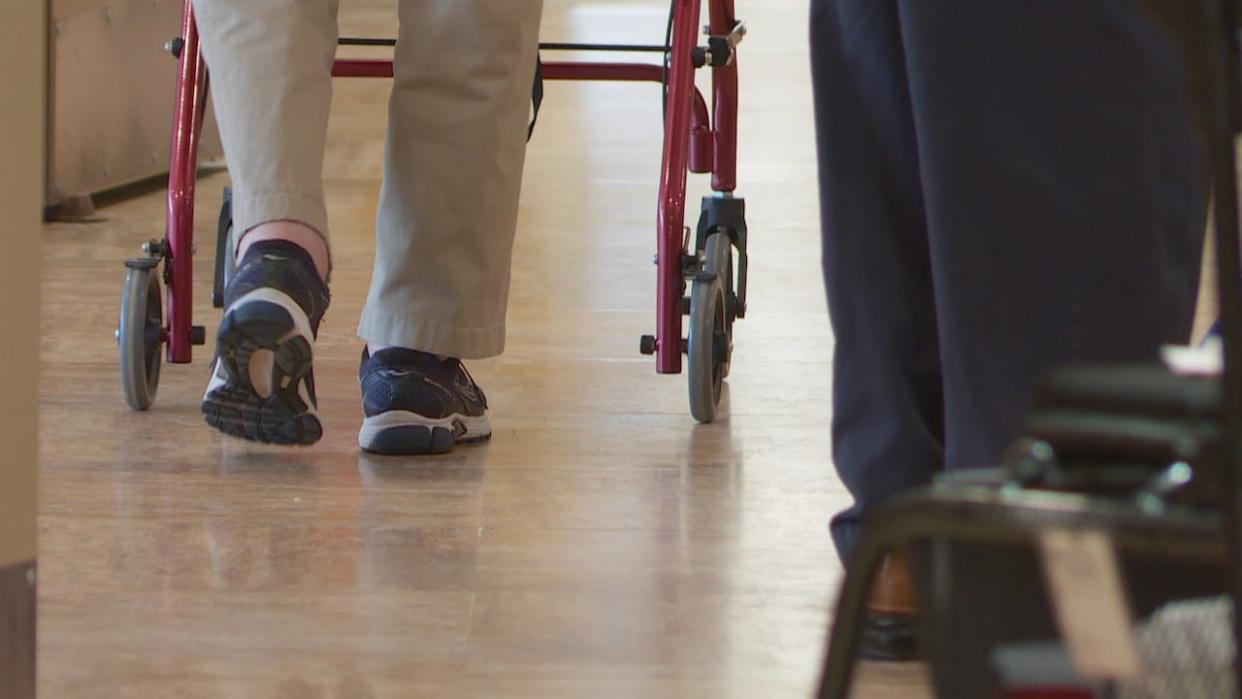CUPE's president on P.E.I. wants private homes out of long-term care business

A union representing 200 workers at one of Prince Edward Island's 10 privately run long-term care homes says a report released last week falls short of addressing fundamental issues faced by residents and workers.
"The obvious solution is... get rid of the private sector, put it back into the public sector where it belongs," said Ashley Clark, the P.E.I. president of the Canadian Union of Public Employees, which represents 200 workers at Atlantic Baptist Home.
"Long-term care is health care, so in our view there's no reason for it to be provided by private operators at all," Clark said.
The report released last Thursday followed the work of an independent external review panel chaired by retired lawyer Michelle Dorsey.
It called for greater parity when it comes to public and private care homes in P.E.I. That would include governing legislation that applies to both structure uniformly, and comparable inspection regimes.
The expert panel's report also called for more government support for private long-term care operators to let them increase staffing and services, offer better wages and improve buildings.

Ashley Clark of the Canadian Union of Public Employee says the solution is not treating public and private long-term care homes on a par, but moving all P.E.I. homes into the public system. (Julien Lecacheur/Radio-Canada)
Clark doesn't think that's the way to go, though.
"Why waste time, energy and resources in improving the private sector so that people can profit off… health care?" she said in an interview Thursday.
CUPE national servicing rep Lori MacKay pointed out that the gap in pay between private and public sector long-term care homes can be $3.50 an hour.
They're looking after the citizens of our province in the most vulnerable time in their lives. And they deserve to have a heightened wage. — Lori MacKay
"The entire sector is underfunded and underpaid, public and private. And these are important jobs," she said. "They're looking after the citizens of our province in the most vulnerable time in their lives. And they deserve to have a heightened wage."
A year ago, CUPE was part of a campaign involving private long-term care operators, calling for increased government funding to improve the wages of its members.
But Clark points to a lack of transparency now that some of that extra funding has been rolled out on P.E.I., as CBC News has reported.
Some funds not accessed
She said workers have been unable to find out whether their employer has accessed any of the money, so they don't know whether their wages should have gone up.
This week, the P.E.I. Department of Health wouldn't tell CBC News which private care homes had signed the new contracts.
In order to get the money, they have to share audited financial documents with the province.
Public records show there are only three ownership groups that operate multiple homes in the province:
Calls to Andrews of Charlottetown this week were directed to the head office of Murphy's Pharmacies, and ultimately not returned.
Jason Lee, CEO of PEI Seniors Homes, didn't say whether his group has accessed the funding.
Ramsay Duff, CEO of MacLeod Group, which operates two homes in P.E.I., said his company signed the new contract and has no problem sharing its records with the government because it's already required to do so for homes it operates in Nova Scotia and New Brunswick.


